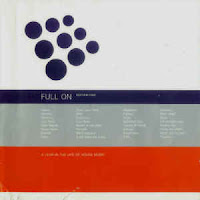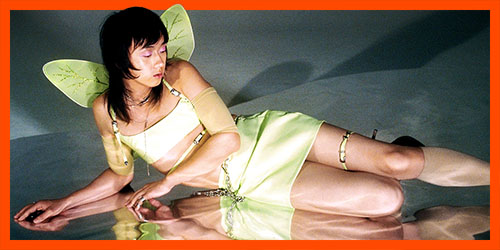Issue 69 of Electronic Sound is out now. Alongside a smattering of finely honed reviews, you'll find my latest full-page column. This one is inspired by my lack of exercise throughout lockdown.
I wanted this latest piece to feel quite physical, quite fleshy. So I start with a beautiful image of a cassette tape wedged into a roll of fat and take it from there. I also use the following words: balls, flatulent, gonads, groin, horns, nipples and orifices. Lovely.
There's also my illustration, a section of which you can see in colour above. I've included a couple of first draft sketches which show I find it much easier to draw a big old bull than stupid annoying dumbbells.
I don't mention the Covid crisis in my column, although that's where the writing process started. It's nearly six months since the UK tumbled into a viral dystopia. It's been heartbreaking for those who have lost loved ones or their income.
Here are some personal thoughts about the whole coronavirus thing. I entered the pandemic as a (a) venue guy who did (b) journalism and (c) performing: the three e's of eventing, editing and egomania. Those elements of my work life have been affected in different ways.
The venue bit of my life (running the gorgeous event space at Manchester's Burgess Foundation) has changed considerably, but I've been able to pivot my job into other things, namely coming up with clever online things that make people interested in Anthony Burgess. On this score, I am lucky to have a supportive employer, and I've found this work to be a boon amid the bedlam.
The journalism bit of my life has remained unaffected. At the start of the year, I started illustrating my own monthly column for Electronic Sound, and if anything the lockdown bought me more time to work on the words and pictures. Long may it continue – you can subscribe here.
The performing? Here's the interesting one. In fact, this is what I really want to talk about. Brace yourself.
Over the past six months, the world of spoken word and comedy has moved to video. Twitch streams, Zoom gigs, Facebook premieres and the like. Rumour has it the internet is now made up of 692% TikToks.
I did one video for The Old Courts, which was a huge amount of fun, but it made me realise that the whole point of my own performance is to react to the audience in the room. I need those surprise moments, those face twitches, that slow glorious 'failure' on stage.
Online performing is kind of fine, but it doesn't thrill me. It doesn't scratch my egomaniacal itch. Thank goodness for that Garden Fringe real-life gig which still gives me a buzz every time I think about it.
I have similar reservations as a consumer. I've enjoyed being part of the audience at the online XS Malarkey, chatting to techno heads in Orbital premieres, and a few fun things friends have done. However, the Burgess and journalism elements of my work life mean a lot of screen time: adding even more screen time into my day hasn't proved healthy.
Added to that, sitting on my own in a distanced community just emphasises how far away my real actual friends are. There's a tinge of the blues to it all.
All of which is to say: I have felt increasingly left behind by Covid-era entertainment. As audiences start to return to actual venues, comedy performers will start earning again, and an industry will slowly rise again. I hope that day comes soon. But this presents me with a dilemma.
My own performing life, which was starting to move from spoken word into comedy, will be much slower to recover. Thing is, although I miss it, I don't *need* the money, and I'm not going to start hustling for paid gigs when a tonne of entertainers need to rebuild their income from scratch. I will gig again, of course, but my previous performance rate – a gig every couple of weeks and my 'residency' at a monthly spoken word night – is pretty much over.
This all sounds depressing, doesn't it. However, I am an optimist: there is a silver trouser lining to this cloud of pants. I need to see this performing pickle as a challenge to up my game.
Firstly, I need to become a facilitator (not that I wasn't already) by putting on alternative weirdo comedy gigs myself once audience distancing is less of a restriction. Create my own stuff, like that tall bloke out of Pointless. This will give me valuable stage time for my own material while giving a bit of cash to silly, funny performers.
Secondly, I'm going to come up with an online series that leans heavily on my cartoons. I don't know what that is yet, but it needs to happen and no, it won't be a traditional performance for reasons I've waffled about already. I'm thinking possibly an animated guide to electronic music (caveat: not properly animated).
All of these thought processes swirled around my head and ended up solidifying into a column about rolls of fat and groins and gonads. Funny how the mind works.
I haven't mentioned blogging, by the way. I'm very sad to announce that this will continue unabated, and I will carry on pummelling your face with word-zingers for a long time to come. Sorry, face.
Further Fats: Fats at the Lowry – a Curious trip to the North East (2017)
Further Fats: The quarantine raves: Top one, nice one, get Covid? (2020)








